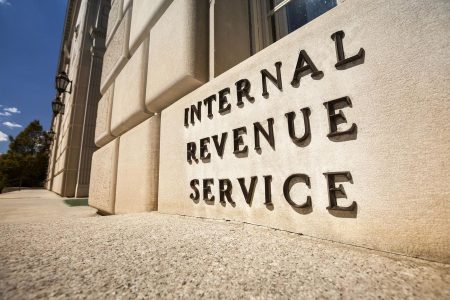If you’re a U.S. taxpayer and the Internal Revenue Service discovers an issue, the amount of time the agency has to catch you might be longer than you think.
The IRS has a very long arm that can grab onto taxpayers many years after they have made a tax mistake, or worse. With the flurry of tax return activity, now is a good time to look at the various statutes of limitations applicable to U.S. tax matters.
What Is A Tax SOL?
The SOL prescribes the length of time permitted to the IRS to enforce the tax rules, typically by auditing a tax return and assessing additional tax. If the length of time has run out, the IRS cannot claim additional tax is owed and assessments are time-barred. The SOL places a clear limit on the IRS’ authority to review tax returns and is a very powerful taxpayer weapon. To use the weapon effectively, taxpayers need to understand the rules.
In certain cases, the SOL will be longer than others or it will not start at all. For Americans living and working overseas, SOL issues may become even more confusing than for those stateside because of some special tax rules discussed below.
General Rule
In order to assess additional tax, the IRS has three years after the date the tax return was due or the date the return was filed, whichever is later. This rule applies regardless of whether the tax return was timely filed or filed late.
Underreporting Income
The IRS is given more time to catch a taxpayer and the SOL is extended to six years if there is a “substantial understatement” of income, defined as totaling 25% or more.
This six-year rule also applies if the taxpayer omits more than $5,000 from gross income that is attributable to certain kinds of foreign (non-U.S.) financial assets. Overseas Americans are more likely to own foreign financial assets since the category includes such items as foreign bank accounts, foreign pension plans, and ownership interests in non-U.S. entities. These assets are part and parcel of everyday life for Americans living abroad.
Cases When The IRS Has Forever
In various cases, the SOL never even starts. These are scenarios to especially watch out for because the IRS can assess tax at any time in the future. Again, Americans living in foreign countries are more likely caught out.
The Tax Return Is Not Filed
The SOL period does not start unless an income tax return is filed. Not filing the return often condemns the taxpayer to incessant worry that the IRS will eventually come calling since it has an unlimited timeframe to assess tax. Even death is not a way out, since the unpaid tax liabilities will follow the estate and possibly impact the heirs.
Unfiled tax returns can be particularly troublesome for Americans living and working abroad. They often mistakenly believe that a U.S. tax return need not be filed if taxes are being paid to the foreign country, or if the taxpayer earns less than the foreign earned income and housing exclusion amounts. This is incorrect. Tax returns must still be filed in order to claim the benefit of these income exclusions or to claim foreign tax credits. Fortunately, the IRS has programs permitting corrections of such errors with no penalty.
Failure To Report Foreign Information
The SOL will not start to run if the taxpayer failed to file certain foreign-related information returns. Again, Americans living abroad are more likely to be impacted by this particular SOL since reporting may be required for having interests in specified foreign financial assets such as non-U.S. bank or securities accounts, holding interests in foreign entities, the receipt of foreign gifts or bequests and many other transactions in the offshore context.
The SOL is suspended up until the time the information is provided to the IRS. Once provided, the entire tax return remains open for IRS adjustments for a period of three years.
Tax Fraud Or False Returns
The SOL does not start to run if a tax return is false or fraudulent or if there is a “willful” attempt to evade taxation. In such cases, the IRS can reach back as far as it wants. In fact, however, it is rare that the IRS reaches back more than 6 years since the agency bears a significant burden of proof, which is more difficult over time.
Be Extra Diligent
It’s crucial for taxpayers to understand the SOL rules because they set a time limit on how long the IRS can audit their returns and assess additional taxes. This knowledge provides taxpayers with a sense of security and finality, helping them manage their financial affairs with confidence.
It’s just as crucial to ensure that the tax professional has the requisite experience for the case at hand. Not all tax professionals are the same and in a foreign context, it is easy to make mistakes. Make sure the professional has been given full information in writing, especially about ownership of any foreign accounts or assets.
Send a note about an area of tax you’d like to see me write about.
Read the full article here
















